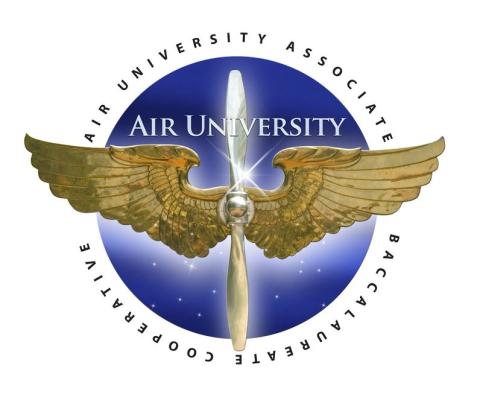This online degree program will help you expand your knowledge of operations, supply chain, logistics, production, quality, project management, transportation, and technology. As a student, your coursework will prepare you become an effective manager who can make strategic contributions to help an organization become more efficient and profitable.
Credit Hours: 120 | Transfer: Up to 90 Credits | Tuition Cost
This degree recognizes the interconnectivity of supply chain management, purchasing, logistics, sustainable facility operations, and budget management. The courses within the degree provide opportunities for students to understand how these various disciplines are applied in today’s world through the analysis of real-world case studies. Students will also be presented with opportunities to explore the impact emerging technology is having on these areas.
Course Highlights
- Career Development
- Economics of Artificial Intelligence
- Introduction to Data Analytics
- Statistics
- Excel
- Principles of Management
- Budget Management
- Managing Information Technology
- Project Management
- Operations, Supply Chain, and Logistics Management
...and more!
Why UNH CPS?
- Regionally accredited by the New England Commission on Higher Education, Inc. (NECHE).
- Available fully online with select on-campus courses.
- Affordable tuition.
- Nationally ranked online programs.
- About 89% of our students are transfer students. Making the most of your transfer credits is our specialty.
- Career advising is available to all students and alumni. We also extend this service to those considering their college options.
- Faculty who are subject matter experts and share their real-world expertise, helping you apply what you learn to your personal goals and career.
- We’re experts at assessing credit toward your undergraduate degree – not only from previous college coursework, but also for other college-level knowledge demonstrated outside the traditional classroom.
Whether you completed your associate degree or took a few courses, we have experience working with community college students nationwide and we are experts at maximizing your transfer credits. We are proud of our formal partnerships to support community college graduates through our Transfer Pathways.
Students pursuing an associate degree at a New Hampshire community college are encouraged to explore our Transfer Pathway below.
B.S. Operations, Supply Chain, and Logistics Management CCSNH Transfer Pathway
- Completion of our free, online application for admission
- High school diploma, completion of a high school education in a homeschool setting under state law, or demonstrate high school equivalency.
- Successful completion of one of the following exams will be required for demonstrating high school equivalency: the GED, HiSET, or TASC
Upon graduation, those who wish to pursue a master’s degree are encouraged to explore the M.S. in Project Management. Or, if a graduate certificate is of interest, explore the credit-bearing Graduate Certificate in Operations Management or Graduate Certificate in Project Management.
Curriculum & Requirements
This degree plan is a sample and does not reflect the impact of transfer credit or current course offerings. UNH CPS Online undergraduate students should develop individual academic plans with their academic advisor during their first year at UNH.
Sample Course Sequence
| First Year | ||
|---|---|---|
| Fall | Credits | |
| APST 405 | Career Development and Planning | 2 |
| CMPL 402 | Excel | 2 |
| ENG 420 | The Writing Process | 4 |
| MGMT 410 | Principles of Management | 4 |
| General Education Course | 4 | |
| Credits | 16 | |
| Spring | ||
| COM 460 | Interpersonal Communication and Group Dynamics | 4 |
| CRIT 501 | Introduction to Critical Inquiry | 4 |
| MTH 402 or MTH 504 or MTH 510 | Math for Our World or Statistics or Pre-Calculus | 4 |
| General Education Course | 4 | |
| Credits | 16 | |
| Second Year | ||
| Fall | ||
| COM 480 | Visual Communication | 4 |
| MTH 504 | Statistics | 4 |
| MGMT 569 | Budget Management | 4 |
| Elective | 4 | |
| Credits | 16 | |
| Spring | ||
| CMPL 643 | Managing Information Technology | 4 |
| DAT 510 | Introduction to Data Analytics | 4 |
| ECO 635 | Economics of Artificial Intelligence | 4 |
| General Education Course | 4 | |
| Credits | 16 | |
| Third Year | ||
| Fall | ||
| CRIT 602 | Advanced Critical Analysis and Strategic Thinking | 4 |
| OPS 605 or SCM 570 | Quality Management or Supply Chain Purchasing Management | 4 |
| SCM 610 | Supply Chain Management | 4 |
| Elective | 4 | |
| Credits | 16 | |
| Spring | ||
| OPS 600 or MGMT 680 | Operations Management or Global Business | 4 |
| OPS 610 or SCM 715 | Sustainable Facility Operations or Logistics Management | 4 |
| MGMT 626 | Project Management Strategies | 4 |
| Elective | 4 | |
| Credits | 16 | |
| Fourth Year | ||
| Fall | ||
| IDIS 601A or IDIS 601B or IDIS 601C | Interdisciplinary Seminar: Being Happy or Interdisciplinary Seminar: Business of Beer or Interdisciplinary Seminar: Paranormal Activities | 4 |
| OPS 720 or MGMT 642 | Fundamentals of LEAN Process Improvement or International and Cross-Cultural Management | 4 |
| Elective | 4 | |
| Elective | 4 | |
| Credits | 16 | |
| Spring | ||
| MGMT 795 or MGMT 797 or MGMT 798 | Integrative Capstone: Industry-Based Internship or Integrative Capstone: Industry-Based Project or Integrative Capstone: Strategic Management Experience | 4 |
| Elective | 4 | |
| Credits | 8 | |
| Total Credits | 120 | |
Degree Requirements
General Education Program Requirements
A minimum grade of D- is required in all General Education coursework. Students are allowed a maximum of two course overlaps. Overlaps can be used between Major, Minor and General Education requirements with only 8 credits overlapped between the Major and Minor.
All General Education requirements must be taken prior to the capstone.
| Code | Title | Credits |
|---|---|---|
| ENG 420 | The Writing Process | 4 |
| COM 460 | Interpersonal Communication and Group Dynamics | 4 |
| COM 480 | Visual Communication | 4 |
| CRIT 501 | Introduction to Critical Inquiry | 4 |
| Select one of the following: | 4 | |
MTH 402 | Math for Our World | |
MTH 504 | Statistics | |
MTH 510 | Pre-Calculus | |
| Knowledge of Human Behavior & Social Systems | 4 | |
| Knowledge of the Physical & Natural World | 4 | |
| Knowledge of Human Thought & Expression | 4 | |
| CRIT 602 | Advanced Critical Analysis and Strategic Thinking | 4 |
| IDIS 601A | Interdisciplinary Seminar: Being Happy | 4 |
| or IDIS 601B | Interdisciplinary Seminar: Business of Beer | |
| or IDIS 601C | Interdisciplinary Seminar: Paranormal Activities | |
| Total Credits | 40 | |
Writing Program Requirements
All bachelor's degree candidates are required to complete four writing intensive courses as part of the University Writing Program Requirements as follows:
| Code | Title | Credits |
|---|---|---|
ENG 420 | The Writing Process | |
One Writing Intensive course in the Major | ||
One Writing Intensive course at the 600-level or above | ||
One Additional Writing Intensive Course | ||
Writing Intensive courses are identified with the label "Writing Intensive Course" in the "Attributes" section of the course description and/or a W following the course number.
Major Requirements
Prior to capstone enrollment, students are expected to complete all General Education program requirements. Students should consult with their advisor regarding specific major courses that may be completed with their capstone. Refer to the Degree Plan for a sample course sequence. Academic Advisor approval is required for registration to be processed.
| Code | Title | Credits |
|---|---|---|
| Major in Operations, Supply Chain, and Logistics Management | ||
| Foundation Courses | ||
| APST 405 | Career Development and Planning | 2 |
| CMPL 402 | Excel | 2 |
| DAT 510 | Introduction to Data Analytics | 4 |
| Intermediate Courses | ||
| ECO 635 | Economics of Artificial Intelligence | 4 |
| MTH 504 | Statistics | 4 |
| MGMT 410 | Principles of Management | 4 |
| MGMT 569 | Budget Management | 4 |
| Advanced Courses | ||
| CMPL 643 | Managing Information Technology | 4 |
| MGMT 626 | Project Management Strategies | 4 |
| SCM 610 | Supply Chain Management | 4 |
| OPS 600 | Operations Management | 4 |
| or MGMT 680 | Global Business | |
| OPS 605 | Quality Management | 4 |
| or SCM 570 | Supply Chain Purchasing Management | |
| OPS 610 | Sustainable Facility Operations | 4 |
| or SCM 715 | Logistics Management | |
| OPS 720 | Fundamentals of LEAN Process Improvement | 4 |
| or MGMT 642 | International and Cross-Cultural Management | |
| Integrative Capstone | ||
| MGMT 795 | Integrative Capstone: Industry-Based Internship | 4 |
| or MGMT 797 | Integrative Capstone: Industry-Based Project | |
| or MGMT 798 | Integrative Capstone: Strategic Management Experience | |
| Total Credits | 56 | |
Electives
Open electives are courses students will need to take in addition to their general education and major requirements in order to satisfy the remaining credit totals for their programs. Open electives are defined as any credit course offered by the College not already included in the student's general education, major, option or minor. Students will need 120 credits total to graduate with a bachelor's degree from the Online Division of the College of Professional Studies.
Program Learning Outcomes
- Demonstrate knowledge of the theory and practice of operations, supply chain, and logistics management.
- Apply qualitative and quantitative methods to problem-solving in business analysis and operational decision-making.
- Manage and lead strategically to enhance performance for individuals, teams, and organizations.
- Analyze operational, supply chain, and logistics strengths and weaknesses from multiple perspectives, including ethical, legal, fiscal, and quality.
- Communicate and interact productively in culturally responsive ways with a diverse and changing workforce.
Your Prior and Current Learning Counts
Many of our students can demonstrate college-level knowledge gained from military, workplace and volunteer-based training, and experiences. We are experts at helping students demonstrate learning and earning academic credit.
Opportunities for Airmen

The AU-ABC partnership between Air University and the UNH College of Professional Studies allows you to apply your CCAF Associate in Applied Science toward this online bachelor's degree. All CCAF degrees are transferable into this program. earn More About Community College of the Air Force AU-ABC
Career Outcomes
Talk with your advisor to discuss how your program, experience, and goals align.
